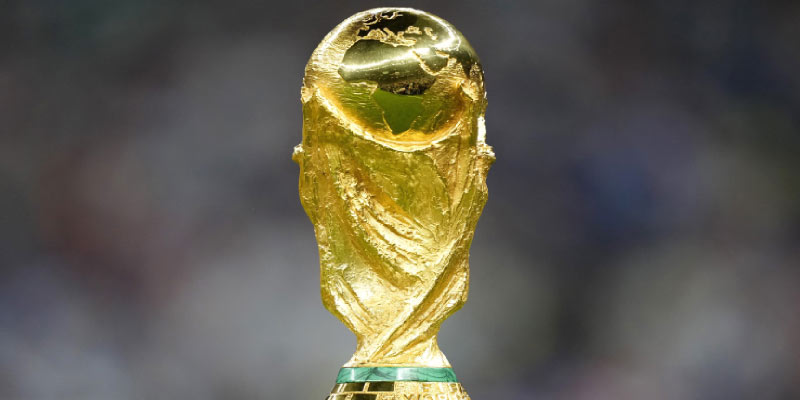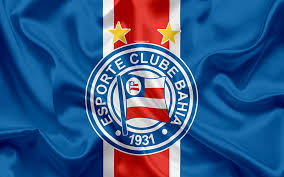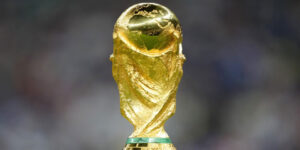FIFA World Cup Secrets They Never Told You About

FIFA World Cup Secrets They Never Told You About
The FIFA World Cup isn’t just a tournament—it’s the grand stage where history, passion, and nations collide. Every four years, the world halts as legends are born, dreams are crushed, and moments become immortal. But beyond the goals and glory lies a deeper story—of rivalries forged in fire, political tensions masked by sport, and cultures united in celebration. From its unpredictable origins to the dazzling modern spectacle, the World Cup mirrors our world in motion. It’s not just about who wins—it’s about how the world plays, feels, and remembers. This is more than football. This is the FIFA World Cup.
Future FIFA World Cup Locations
As the world eagerly anticipates future FIFA World Cup tournaments, the landscape of hosting countries is ever-changing. The evolution of technology, logistics, and the growing globalization of soccer will continue to influence these decisions.
Upcoming Tournaments
The upcoming World Cups will take place in Qatar in 2022 and in the United States, Canada, and Mexico in 2026. Qatar will mark the first time the World Cup is held in the Middle East, bringing attention to a region often overlooked in the global soccer landscape.
The 2026 tournament will see an expanded field of 48 teams competing across three countries, promising a memorable and diverse event. These multicultural settings provide unique opportunities for cross-border collaborations, enriching the tournament’s atmosphere.
Impact of Technology
As technology and innovation continue to advance, hosting countries will leverage these trends to enhance the spectator experience. From virtual reality to advanced stadium infrastructure, hosts will cater to the expectations of a global audience that thrives on immersion and engagement.
Future tournaments may also adopt sustainable practices, addressing environmental concerns that come with organizing large-scale events. Dedicating resources to eco-friendly initiatives could set a new standard for global events in the years to come.
The Shift Towards Inclusivity
With a greater focus on inclusivity and representation, future World Cups will likely strive to honor and highlight diverse cultures. Organizations collaborating with stakeholders to promote local traditions, languages, and customs will create a rich tapestry of experiences and celebration during the tournament.
These steps will reaffirm the role of the FIFA World Cup as a harbinger of unity and resilience, propelling soccer into a brighter and more inclusive future.
FIFA World Cup and National Pride
The FIFA World Cup serves as a powerful expression of national identity and pride for participating countries. The tournament transcends personal allegiances, coaxing entire nations to rally behind their teams, thus intertwining soccer and patriotism.
National Identity
Throughout history, the World Cup has represented the essence of national identity as countries engage in fierce competition through the sport. When teams don their national colors and symbolically take the field, it is a display of communal pride—showcasing cultures, traditions, and values at the world stage.
The ephemeral nature of sport exacerbates the emotional ties; a single victory can unite a country, transcending social divisions. The global spotlight on the tournament invokes an overwhelming sense of belonging and national honor, allowing fans to connect over shared aspirations.
The Role of Players
Players become icons during the World Cup, wielding influence beyond just their athleticism. They are symbols of hope and inspiration for millions who trace their roots to those national identities. Every goal scored, penalty saved, or unforgettable moment etched into memory fuels pride within their respective nations.
Legends like Diego Maradona and Pelé have become their countries’ personifications, impacting the national consciousness while propelling local aspirations. The passion they exhibited on the field reverberates through generations, shaping the cultural landscape of soccer.
A Double-Edged Sword
While the World Cup serves as a source of national pride, it can also expose underlying tensions within nations. The spotlight can highlight political divisions, social injustices, and disparities as diverse groups come together under one flag.
These complexities prompt fans and stakeholders to critically evaluate their love for the game. Engaging in discussions around diversity, inclusion, and equality during the World Cup can channel patriotic fervor into meaningful dialogue—transforming pride into actionable change.
Economics of the FIFA World Cup
The economic impact of the FIFA World Cup is colossal, affecting host countries and participating nations well beyond the matches played on the field. The tournament embodies a unique convergence of sports, economics, culture, and social implications, shaping economies while drawing the attention of global audiences.
Investment and Infrastructure
Hosting the World Cup requires significant investments in infrastructure, including stadiums, transportation systems, and accommodations. Countries often embark on ambitious projects to prepare for the influx of spectators and players. The 2014 Brazil World Cup highlighted both the successes and pitfalls of such investments, drawing scrutiny as issues related to local communities arose.
Repercussions of these investments are multi-faceted. While newly built infrastructure can benefit future tourism or local economies, the financial burdens require critical evaluation. Sustainable practices and long-term planning are essential to mitigate potential community grievances and ensure that investments yield lasting benefits.
Economic Growth
The World Cup generates much-needed economic growth through tourism, hospitality, and employment. Millions of fans travel for the event, flooding local businesses and increasing demand for services. Additionally, hosting can attract international investment, put the nation on the global stage, and fortify cultural ties.
The 2018 World Cup in Russia showcased the potential economic impact, with significant media attention and an increased profile on the global stage. Balancing the influx of foreign dollars with local needs, however, remains a delicate act.
Marketing and Sponsorships
The FIFA World Cup is undoubtedly a marketing and sponsorship bonanza. Major companies leverage the tournament for brand exposure, tapping into a unique global audience. The association with event themes can enhance brand reputation while creating opportunities for visibility and revenue.
With this lucrative marketplace, however, comes the ethical responsibility for sponsors to align values with social progress. Partnerships committing to sustainability, social justice, and community well-being can create a positive impact, enriching the legacy of the World Cup.
Conclusion
The FIFA World Cup is much more than a mere sporting event; it is an interconnected tapestry of history, culture, economics, and national pride. Each World Cup not only adds to the storied legacy of the tournament but also shapes the future of soccer and its cultural significance around the globe.
As we step into a new era of the FIFA World Cup, marked by inclusivity, innovation, and sustainable practices, we celebrate the profound impact this tournament has on nations and their people. By embracing these values, we affirm the power of soccer to unite, inspire, and pave the way for a brighter future for generations to come. The World Cup remains a testament to the passion of fans, the talent of players, and the communities that come together in a shared celebration of the beautiful game.



